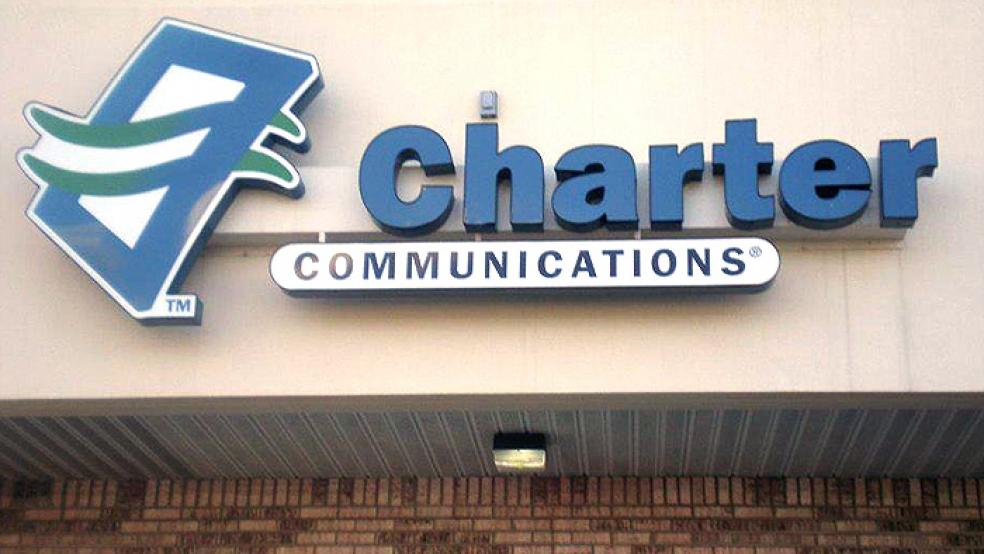The $55.3 billion cash-and-stock deal that will see Charter Communications buy Time Warner Cable may have been hammered out by the two companies and their bankers, but it was essentially arranged by the U.S. government.
Charter, controlled by billionaire John Malone through his company Liberty Media, had long been interested in Time Warner Cable and had made a hostile bid last year to buy the larger, New York-based cable company, only to be outbid by Comcast, which offered $45.2 billion.
Related: Charter and Time Warner Cable Merger: It’s All About Broadband
Of course, Comcast decided to walk away from that deal last month after regulators at the Justice Department and the Federal Communications Commission raised objections to the proposed pairing — objections that may have been spurred, to some extent, by millions of consumer comments. "The companies' decision to abandon this deal is the best outcome for American consumers," then Attorney General Eric Holder said in a statement at the time. “This is a victory not only for the Department of Justice, but also for providers of content and streaming services who work to bring innovative products to consumers across America and around the world.”
That sent Time Warner back into the waiting arms of its other suitor.
And just in case the parties involved thought that the government would block all cable deals, FCC Chairman Tom Wheeler recently reached out to Time Warner Cable CEO Rob Marcus and Charter CEO Tom Rutledge, along with other industry executives, to let them know that his agency’s objections to the Comcast deal shouldn’t be seen to indicate that other industry deals would also be doomed, The Wall Street Journal reported last week.
So Charter came calling again, and this time it was friendlier than it had been last year. All that remained, really, were the details — and the question of whether some other interested party would step up. French billionaire Patrick Drahi’s telecom company Altice SA reportedly did approach Time Warner Cable in recent weeks, but Charter’s new offer may be difficult to beat: The $55 billion deal is about 50 percent richer than the $37 billion offer Time Warner rejected early last year as “grossly inadequate,” and $10 billion more than the Comcast deal accepted about 15 months ago. The new price tag also represents a 14 percent premium to Time Warner Cable’s Friday closing price. Including debt, it values Time Warner Cable at $78.7 billion.
Related: The Long, Slow Death of Cable Just Reached a Tipping Point
Government regulators may be more likely to sign off on this deal than the Comcast one, but the FCC’s Wheeler quickly emphasized that his agency wouldn’t just rubber stamp the new merger. “The FCC reviews every merger on its merits and determines whether it would be in the public interest,” he said in a statement. “In applying the public interest test, an absence of harm is not sufficient. The Commission will look to see how American consumers would benefit if the deal were to be approved.”
Charter is now the third-largest cable provider, but the Time Warner acquisition and a companion $10.4 billion purchase of Bright House Networks, a smaller cable provider, would immediately make it a more significant competitor to Comcast. Charter would grow from about 4.1 million TV subscribers and 4.9 million broadband subscribers to about 24 million subscribers total. Comcast has about 27 million cable and Internet subscribers.
A combined Comcast and Time Warner Cable would have controlled 57 percent of the U.S. broadband market, using the FCC’s recently revised definition of what can be called broadband. The new Charter would reportedly control about 30 percent of the U.S. broadband market.
Unlike Comcast, which owns NBC Universal, Charter also doesn’t own any content providers, which may mean one less hurdle to regulatory approval.
Top Reads from The Fiscal Times:
- Putin Isn’t Reviving the USSR: He’s Creating a Fascist State
- Cyber Thieves Hit the IRS—and 100,000 Taxpayers
- Boomers, It’s Time to Cash Out of This Bubble


